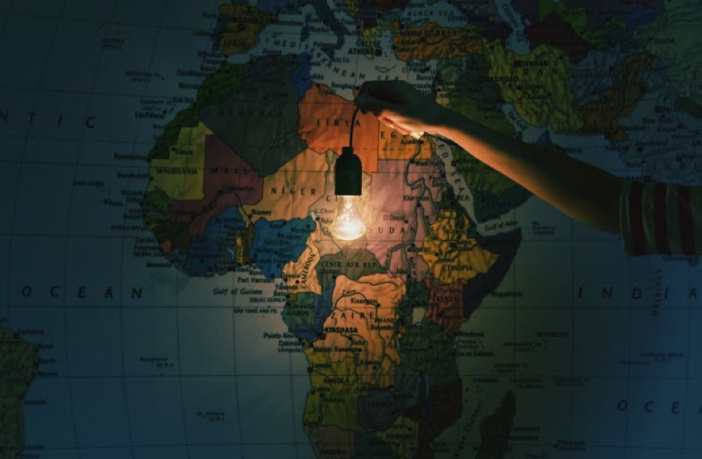- When you move into a new business space, you have to learn that corporate culture.
- This was a refrain repeated in various ways across five recent different country roundtables about doing business in Africa’s energy sector, focussing on Nigeria, Rwanda, Kenya, Uganda and Ghana.
Before delving into country-specific details, these are some of the common themes observed across the African energy sector:
- Integrating into a new business environment takes time and effort. But, getting to know the new system is worth it because understanding the landscape means you can introduce a solution that is applicable and usable.
- Keeping the concept of productive use of energy in mind when starting a power development project was also emphasised as key to long term sustainability in many sessions.
- A question raised on the Kenyan roundtable that could be extended to any African country – if you are still trying to create access to energy and extend the network, what realistically could multiple distribution companies achieve? This emphasised that definitions of the energy transition across Africa are very different from what is expressed in a developed nation.
- How people use electricity once they have access was also a big discussion and the question was raised for all of Africa – do we make sure people understand what electricity can do for them beyond just lighting a room?
NIGERIA
Opportunities abound across the Nigerian power sector, which the prospective businessperson will recognise if they spend enough time exploring the sector. Getting involved in a project roll-out or proof of concept project is a great way for private sector participants to properly understand the lay of the land.
Information about the latest developments, players and policies across the energy sector in Nigeria is a problem simply because there is so much happening at any given time. This is where a local country expert is especially useful, as is tapping into the networks like GOGLA and REAN which are trusted sources of mediating information.
RWANDA
Rwanda is lauded by many working in the energy sector across Africa as a country that has simplified the business process. Their one-stop-shop approach where project developers and ministry officials come together to simplify the process is held up as the ideal. Through the intervention of the Rwandan trade and investment ministry, they have the process down to 24 hours to start a new business, which shows the importance government attaches to business formation.
The country has made great strides in aligning its efforts to improve energy access for all with what is feasible rather than only desirable. Already it is starting to plan how to merge current off-grid mini-grids onto their national grid once it reaches far-flung developments. The matter of fair compensation to the power developer is a matter of discussion now before it becomes an issue in the future. Rwanda is also looking into upgrading transmission lines from single phase to three-phase to deal with bringing variable future renewable energy sources onto the grid.
UGANDA
There is no single solution that will lead to immediate energy access for all in Uganda, or any country in Africa for that matter. Using a variety of methods responsive to the needs of the ultimate customer is proving more effective than trying a one size fits all approach.
Country experts were of the opinion that universal access for Ugandans by 2040 was achievable following this line of thinking. And, if policy and regulation were regularly updated to deal with the optimal allocation of resources.
While the COVID-19 lockdowns meant electricity sales dropped when people were not able to move about, it also had the surprising effect of improving utility reliability, not only in Uganda but in several African countries.
KENYA
The Kenyan roundtable specifically delved into the New Energy Act which one participant described as an attempt to bring the country into the modern age. The Act introduces a restructuring of energy institutions. It also introduces the concept of energy conservation and talks about downstream coal – two concepts which are not legislated in other African countries.
Country experts on the Kenyan roundtable discussed the idea that the New Energy Act could be trying to balance affordability with the need to attract the right kind of investment, but they questioned whether any Act dealing with energy matters could really please everyone.
Ultimately though the Act is a strong signal to the outside world that Kenya wants to be at the forefront of the global move to emphasise using renewable energy in a sustainable way.
GHANA
One country decidedly at the forefront of an idea only being discussed but not yet actioned elsewhere, is Ghana with the renegotiation of PPAs. This idea was of great interest to participants who were much mollified by country specialists spelling out how the process is working.
Ghana’s Energy Sector Recovery Programme, if adhered to, should by 2024 address issues of not only non-payment of bills to IPPs but also the financial security needed by future IPPs to create new projects. Country specialists noted that the goodwill from IPPs and political goodwill from government thusfar to face the problem head-on should lead to a point where the energy sector becomes efficient and prices are reflective of market conditions
Author: Theresa Smith

Theresa Smith is a conference producer for Clarion Events Africa. This article was originally published on ESI Africa and is republished with permission with minor editorial changes.











